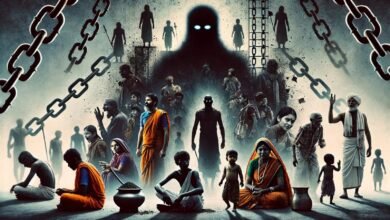The rise of democratic autocracy: A look at Bangladesh and its implications
By Doruvu Paul Jagan Babu : Bureau Chief

Autocracy, where power is concentrated in the hands of a single individual or a small group, saw a significant decline with the dissolution of the Soviet Union in 1991. However, this form of governance has not disappeared entirely. The term “autocracy” derives from the Greek words “auto” (self) and “kratos” (power), indicating a government led by a single sovereign decision-maker. Historical forms of autocracy include dictatorships, absolute monarchies, and elective monarchies.

Current global autocratic trends
As of 2022, 88 countries are classified as having some form of autocracy, affecting 70% of the world’s population (source: World Population Review). The emerging trend is a new variant: democratic autocracy. This system maintains a façade of democracy while essentially functioning as an authoritarian regime. In these systems, power is nominally democratic but is effectively controlled by a single individual, a family, or a small coalition.
Bangladesh: A case study
Recent developments in Bangladesh illustrate this new form of autocracy. Critics argue that, despite the country holding elections in the name of democracy, the ruling party, the Awami League, and its leader, Sheikh Hasina, have manipulated the electoral process to consolidate power. The situation has led to widespread discontent among the youth and intellectuals, who feel that the benefits of governance are skewed towards the ruling party while the common people are neglected.
Current crisis in Bangladesh
The political unrest has culminated in the resignation and flight of Prime Minister Sheikh Hasina, who is now reportedly seeking refuge in the UK. The situation in Bangladesh has raised concerns about the potential for similar autocratic trends to take root in other democracies, including India.
Implications for democratic nations
As the largest democracy in the world, India faces the critical challenge of preserving its democratic values and preventing the rise of a similar autocratic system. The recent events in Bangladesh serve as a cautionary tale for India and other democracies. It is imperative for Indian citizens to remain vigilant and ensure that democracy is not undermined by autocratic tendencies.

Call for global solidarity
In light of the current situation in Bangladesh, there is a call for global solidarity, particularly from the Christian community. It is urged that Christians in India and worldwide pray for a return to democratic and transparent governance in Bangladesh, with a caretaker government facilitating free and fair elections.
The views expressed in this article are those of L K Mrityunjaya, a public intellectual and Christian scholar.








